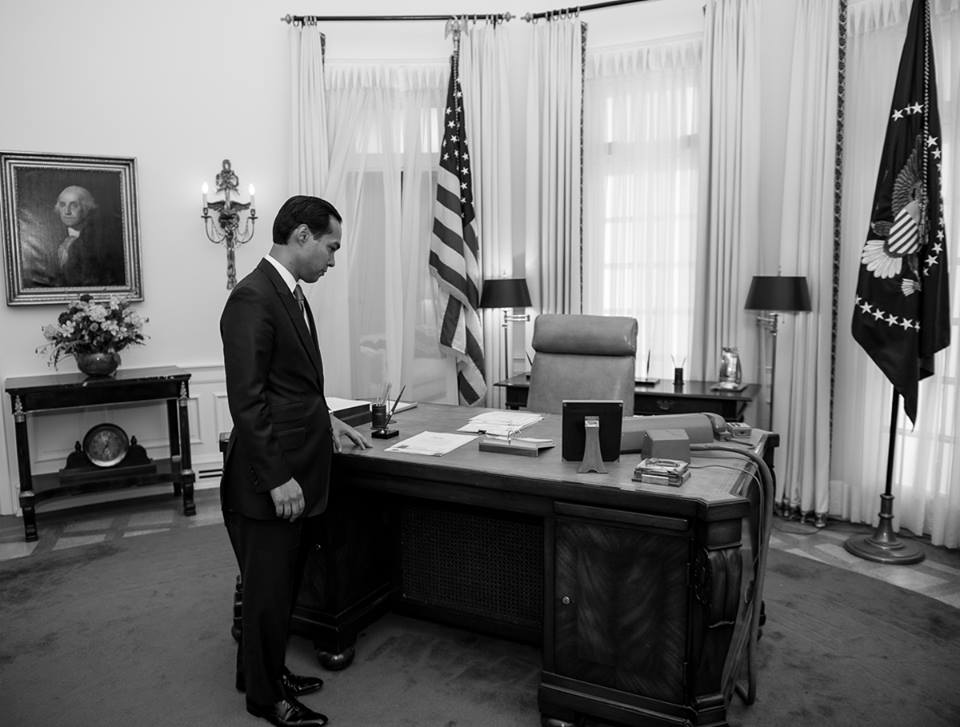On Wednesday September 9, Julian Castro — Secretary of Housing and Urban Development (HUD) — delivered the keynote address at the 2015 Reimagining Cities Conference, hosted at the Lyndon B. Johnson School of Public Affairs on the UT-Austin campus. The conference, which consisted of a series of panels and speeches emphasizing the importance of urban development in the 21st century, featured Austin Mayor Steve Adler, former Texas State Representative Sherri Greenberg, former Atlanta Mayor Shirley Franklin, and numerous other distinguished guests.
Castro, the former mayor of San Antonio, was introduced by newly appointed UT Austin President Greg Fenves, who recalled the Secretary’s speech last year at the 2014 LBJ School commencement, describing him as a “truly great Texan”.
During his half-hour midday speech, Castro touted the creation of the Department of Housing and Urban Development as one of the greatest accomplishments in our nation’s history. Signed into law by President Johnson 50 years ago to the day, the Housing and Urban Development Act of 1965 paved the way for a revolution in public housing and planning policy in America, a key pillar of his Great Society agenda. To drive this point home, Castro noted that poverty is now 40% lower today than it was in the 1960s.
Castro went on to discuss urban development in Austin, highlighting the plight of residents on the city’s eastside who face the dual burdens of gentrification and a lack of socioeconomic mobility, such as opportunities for gainful employment and education. “I’m not picking on Austin; this contradiction is an American reality today,” he said. “Too often, a child’s zip code determines their future.” Indeed, the correlation between a child’s geographic area of residence and future socioeconomic status is well-documented.
The Secretary also touched upon the contentious issue of wealth inequality, a theme former Secretary of Labor Robert Reich discussed with a packed auditorium in the same lecture hall only a day earlier. “We also face a growing gap between the rich and poor,” Castro said. His discussion of the subject was well-timed, as wealth inequality becomes an ever more threatening trend in our country.
Secretary Castro proceeded to extol Johnson’s record as a progressive visionary, remarking that the President would “see what we all see, but don’t like to talk about.” The glowing review of his presidency was accompanied by a list of accomplishments, all of which, according to Castro, were victories he chocked up for the American people. “We are the legacy of Lyndon, and you are too,” he told the audience.

